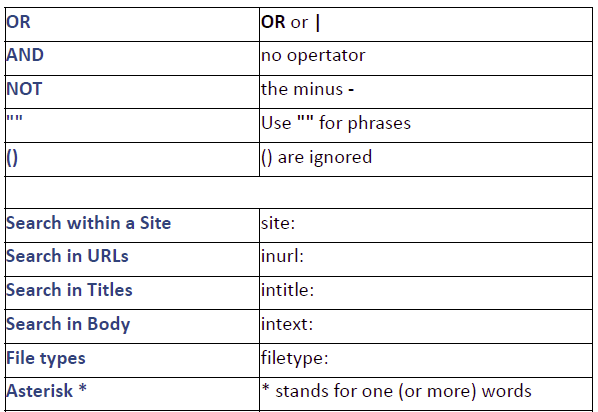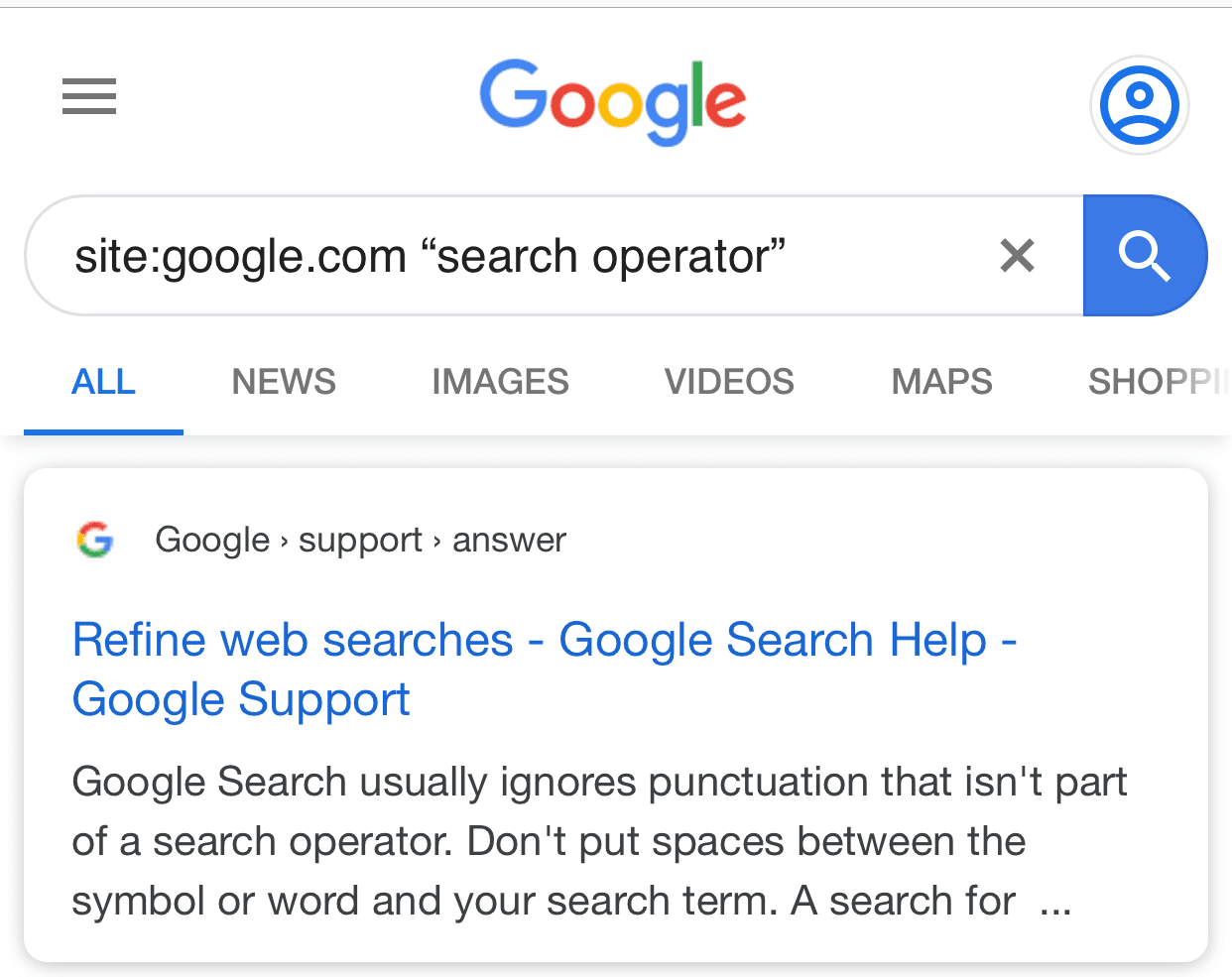Analyzing Google search results is time-consuming. The usage of search operators, on the other hand, can help you narrow down your results. You can make your search much more exact, efficient, and productive by using different search operators. The Google search operators gives precise, specific, and focused results by focusing on specific key phrases.
They help you navigate easily and filter the required search results thereby finding the right match for your search query. This post is all about Google Search Operators, ranging from the definition to a list of different Google Search Operators with their features and functionalities.
Page Contents:
What are Google Search Operators?
Google Search Operators also known as Google search commands and Google advanced search operators are commands that help you narrow down the search results, aiding in better research and analysis. They extend the capabilities of common search analysis by helping you find exactly what you are looking for. You enter your search term into the Google search field and insert a code, word, or phrase for adding special instructions about the search.
Using search commands makes it easy and faster to find the information we are searching for. With over 3.5 billion Google searches every day, getting the exact match is difficult. However, with the usage of search operators, results are much more refined and match the search query of the user.
List of Google Search Operators
1. “search term”
Putting quotation marks around the search term will give you results that exactly match the words in the quote. This term relates to exact match search refine search results.
Example: “Bill Gates”
2. OR
It will give results for two search terms alternatively such as A or B. The pipe (|) operator can also be used instead of “OR”
Example: Exams OR Jobs / Exams| Jobs
3. AND
This will return results related to both search terms such as A and B.
Example: Jobs AND Exams
4. (-)
The symbol (-) placed before search terms give results excluding the term. This operator is used to remove a particular keyword from the search results.
Example: jobs- samsung
5. (+)
You can use the plus operator before certain words to ensure that those keywords are definitely included in the search results.
Example: keywod1+keyword2
6. (*)
Used for matching a specific word or phrase.
Example: Samsung*Mobile
7. ()
It is used for grouping multiple search terms.
Example: (ipad OR iphone) apple
8. ($)
It provides search results related to price.
Example: Mobile $200
9. define:
It serves as a dictionary and displays the meaning of the word.
Example: define: marketing
10. cache:
Provides the latest version of indexed webpage.
Example: cache:abc.com
11. filetype:
Returns results to certain file types such as pdf, doc, ppt, txt, etc. You can also use “ext” operator in place of “filetype” to get the same results.
Example: seo filetype:pdf/ seo ext: pdf
12. site:
It limits results from a particular website.
Example: site:serpok.com
13. related:
Provides search results related to the entered domain. This operator will show you similar websites related to the URL you entered.
Example: related: websiteURL
14. intitle:
Find pages with words in the title. This operator gives results that have specified keyword within the page title.
Example: intitle: marketing
15. allintitle:
Functions similar to “intitle” but returns results with only the mentioned words.
Example: allintitle: digital marketing
16. inurl:
Provides webpages with words in the URL. It lists all the search results that includes keyword somewhere in the website URL.
Example: inurl:mobile
17. allinurl:
Functions similar to “inurl” but returns results consisting of specific words in the URL.
Example: allinurl:mobile seo
18. intext:
Returns result containing words in the page content.
Example: intext:apple
19. allintext:
Functions similar to “intext” but shows results consisting of all the specified words in the page content.
Example: allintext:apple iphone 6
20. AROUND (X)
It provides proximity search between words and phrases within specified words of each other.
Example: apple AROUND(3) iphone
21. weather:
It provides weather results for entered location.
Example: weather: delhi
22. stocks:
Provides stock related information
Example: stock:nifty
23. map:
Displays map results for locational searches
Example: map:karnataka
24. movie:
Shows information about specific movies running in theatres near you.
Example: movie: today
25. in:
Converts one unit into another such as weights, temperatures, currencies, etc.
Example:60 kg in pounds
26. source:
Displays news results from certain sources in Google news.
Example: Digital Marketing source: timesofindia.com
Ways to use Google Search Operators
Identify indexation errors: Google search operators help you discover and fix pages with indexation errors. Commands ‘site’ and ‘inurl’ can be used to find and fix insecure pages on the web. These search operators can also help in finding other SEO issues related to duplicate content or canonical tags.
Check for competitive long-tail keywords: Google search operators can help you determine the keyword competition level and decide its effectiveness. Once you search for specific key terms with ‘allintitle’, you will get the results of websites already using that search term. This way you can analyze the keyword difficulty level before including them in your SEO marketing strategy.
Generate results from reliable sources: Not everything on the web can be trusted. To access reliable data on the internet, you can use the command ‘site’ and specify the site name to get results from the particular website. You can even search for multiple sites using brackets and |. This way, you can access reliable, trustworthy information on the internet.
Find high-quality backlinks: High-quality backlinks are one of the most important SEO ranking factors. Combining operators like ‘intitle’ and ‘inurl’, you can eliminate poor-quality links and find the link pages that you need. The use of these operators ease the work of finding the exact results as manually identifying links is a cumbersome and time-consuming process.
Google is the most popular search engine in the world, with a market share of 91.94 percent. Knowing how Google works can help you rank higher in the SERPs. Search operators are used in a variety of SEO activities, including content research, finding relevant search results, and doing technical SEO audits. They refine your web searches and help you discover the essential results in the shortest time possible. Begin using them to refine your searches and get a precise, relevant match to your query.

